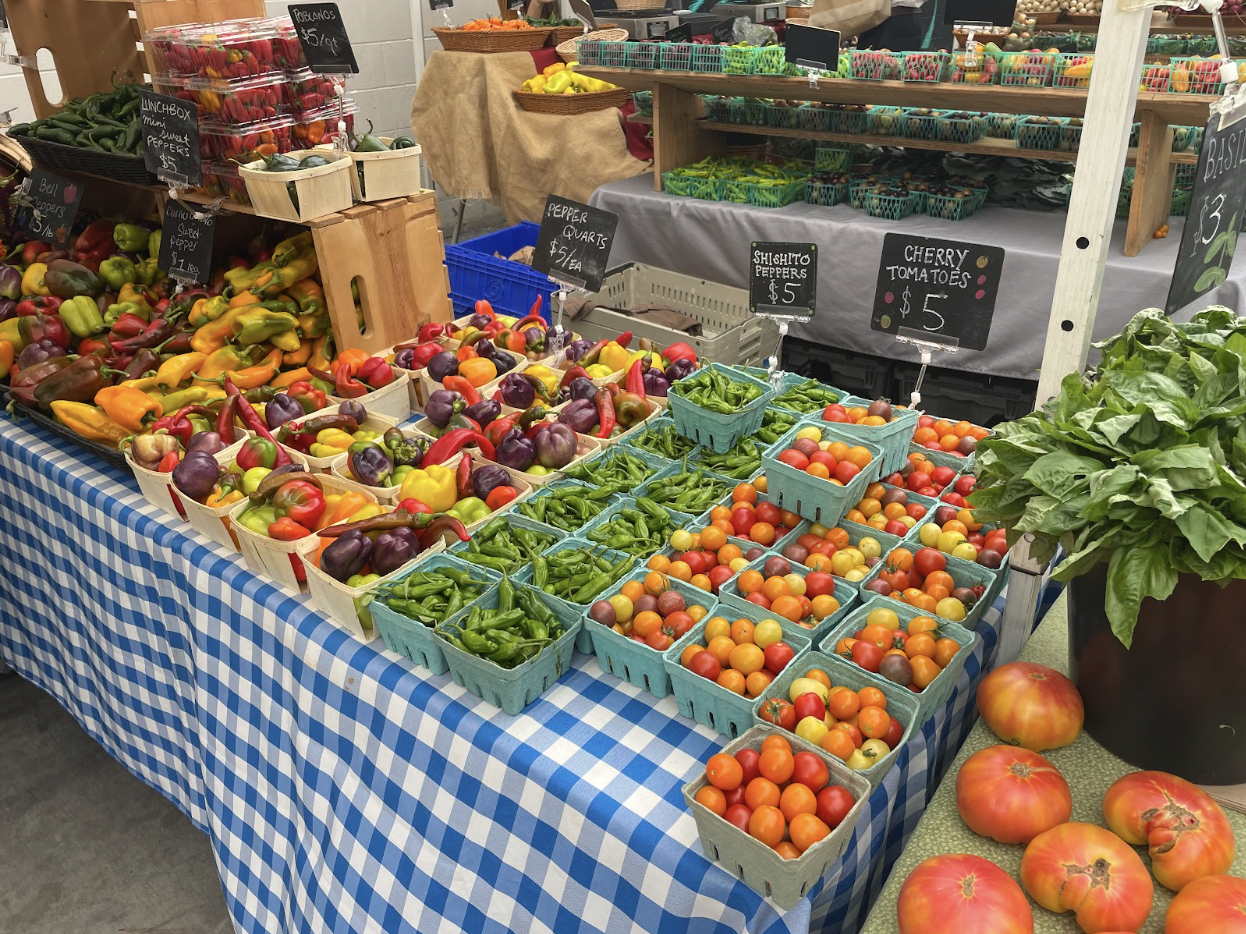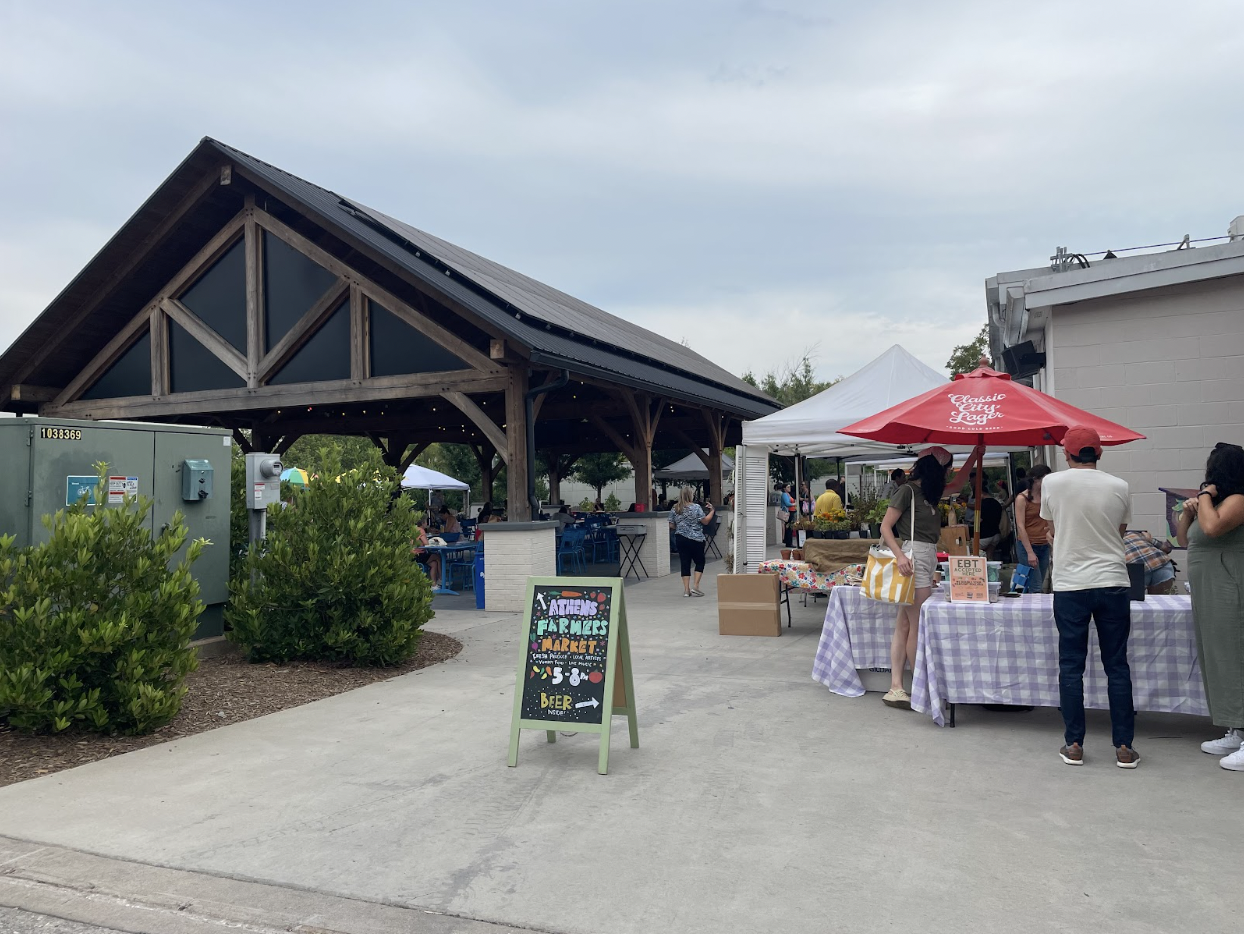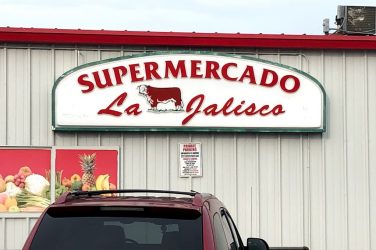Feeding America reported a 13.5% food insecurity rate in Athens-Clarke County in 2021. The USDA defines food insecurity as “a household-level economic and social condition of limited or uncertain access to adequate food.”
Around 27% of the Athens population is in poverty, according to data from the U.S. Census Bureau.
The CDC’s 2018 State Indicator Report on Fruits and Vegetables notes there are 1.5 farmers markets per 100,000 residents in Georgia; the fifth-lowest of all 50 states.
Combatting food insecurity, community gardens and farmers markets in Athens are helping aid disparity of food accessibility by growing fresh local produce and making it readily available for purchase.
Why It’s Newsworthy: Athens-Clarke County and its surrounding counties in Northeast Georgia all suffer from high food insecurity rates, some even high enough to be considered a food desert. Local gardens and farmers markets are moving toward lowering these rates.UGA’s Farmers Market Friends (FMF) contributes to the spread of fresh and accessible food in Athens-Clarke County. FMF is a student-led organization who is working to expand the access to fresh food and to educate students on the health benefits and importance of locally grown produce. FMF partners with the Athens Farmers Market (AFM) to better reach the student population and bring more attention to what AFM offers. They also work alongside FarmRx, who views food as a medicine by prescribing fruits and vegetables to patients, promoting healthy eating and physical wellness.
FMF hosts a weekly “Farm to Campus” market on Wednesdays on the Tate Student Center lawn in an attempt to create the best availability to UGA students. Clarissa Hane, president of FMF, says her goal of bringing the market to campus is to get students more interested in buying local and fresh produce instead of buying packaged goods at grocery stores that are not as good for their health. She referred to the Tate Student Center as a “hub” and believes it is a great spot to reach the most students.
“Bringing it to campus, and especially Tate, which is such a hub on campus, is a really good way to allow people to see what local produce looks like, how it’s marketed and get them interested in shopping locally,” Hane said.
Austin Klepper, a student FMF member and intern at the UGA office of Sustainability, believes the work of the farmers market is important for keeping produce as local and as accessible as possible.
I think it’s all about a sort of circular economy that this promotes,” Klepper said.
The United States Environmental Protection Agency says a circular economy “reduces material use, redesigns materials, products, and services to be less resource intensive, and recaptures ‘waste’ as a resource to manufacture new materials and products.”
The goal is to keep resources in circulation for as long as possible.
Farmers markets in general get produce from local farms, like small family farms, independent farms, and non-corporate farms, which is a way to give money back to the community and small businesses. He mentions this outlet is a more sustainable choice because produce spends less time on shelves, it cuts down on time for transportation, uses less pesticides and the produce is overall fresher.
The produce that is sold at FMF’s Farm to Campus is provided by UGArden, a student community farm. UGArden uses compost to grow their produce, which is a more natural alternative to using fertilizer. They also offer an opportunity to help UGA students create their own compost.
“You can get a little bin for composting and then just drop it off at UGArden when you have your compost,” Hane said. “And they’ll do all the work for you because composting is hard.”
UGArden also gives fresh produce to organizations like Campus Kitchen and Fresh Express. The leftover produce from Farm to Campus is also sent to Fresh Express at Joe Frank Harris Dining Commons. Joe Frank takes the food they give to them, packages it and returns it back to the students.
Athens Farmers Market is another organization whose work is providing opportunities for more accessible food. AFM has a year-round market located at Bishop Park every Saturday from 8 a.m. to noon. They also offer a second, smaller market at Creature Comforts Brewery every Wednesday, 5-8 p.m., during the months March through November.
Located in Oglethorpe County, Hickory Hill Farms is one of the vendors who grows and sells their produce at AFM. Hickory Hill Farms is a multigenerational family farm owned by Garry and Susan Shaw along with their daughter and son-in-law, Jennifer and Josh Johns. The farm has been in Susan’s family since 1852.
Dedicated to organic growing methods and sustainable agricultural practices, they have been offering their produce to the Athens community since 2010. After Josh Johns graduated from UGA with a degree in geology, he accepted the invitation from his wife’s family in 2015 to get involved at this 204 acre farm. Ever since Johns joined as an owner, he has been exponentially growing the size of their garden, producing acres of fresh fruits and vegetables.
“It’s actually about a 10-acre garden … still call it a garden though,” Johns said.
Hickory Hill Farms practices sustainability by caring for their soil by using cover crops, compost and crop rotation. They also practice pest management, and they only use certified organic, non-genetically modified organisms (GMO) and non-treated seeds.

AFM also offers a special program for people on the Supplemental Nutrition Assistance Program (SNAP), which provides low-income households food benefits to help them afford more healthy foods. People with Electronic Benefit Transfer (EBT), a system allowing people on SNAP to pay for food using their benefits, can receive double their amount of money to walk around the market and buy produce with.
“You can swipe an EBT card for $10, and it will automatically be $20 to spend at the market,” Johns said.
Local gardening and farmers markets have many benefits, but also are not without their shortcomings.
According to Sustainability author, Kent E. Portney, organically produced foods are perceived to be more expensive than non-organic foods and distribution is more difficult in food deserts. Portney also mentions the ecological footprint that farming leaves behind if the amount of goods and materials are not being properly regulated.
If a large-footprint is left behind, the area can become unsustainable.
Organic farms are not exempt from these issues. They do not use synthetic fertilizers, which causes them to need much more space to grow crops than alternative methods. More land will have to be prepped for farming, leading to increased deforestation.
In addition, the weather can become a major determining factor that can ruin crop yield.
“In December this past year, there was the huge freeze, and it wiped out like all of the flowers and a lot of the produce, except for like potatoes, radishes, turnips and stuff like that,” Klepper said.
Because of this freeze there was a low produce supply going into the following month. Not all crops can grow year-round in the colder weather if not provided the proper conditions.
Although local gardens and farmers markets are not the perfect and final solution to end all food insecurity, they are doing what they can to help support and pursue available and sustainable food for everyone.
Thomas Lee is a senior majoring in journalism in the Grady College of Journalism and Mass Communication at the University of Georgia.









Show Comments (0)